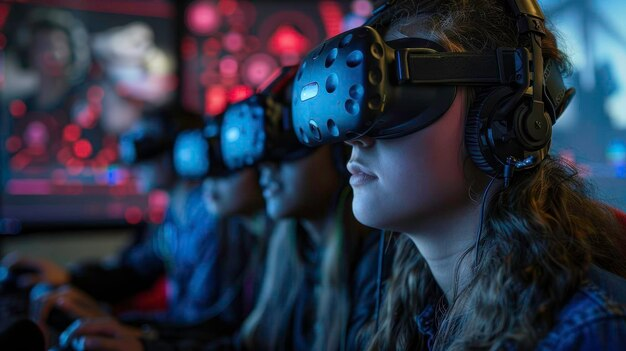Have you ever wondered how video games are becoming more realistic, immersive, and intelligent?
The secret behind this rapid evolution is artificial intelligence (AI). AI is transforming game development to make games more dynamic, interactive, and engaging.
From smarter NPCs to automated game testing, AI is shaping the future of gaming.
The Role of AI in Game Development
AI has become an essential part of modern game development. It is used to create realistic characters, generate unique environments, and improve overall gameplay.
Developers now rely on AI to make games more adaptive and responsive to player actions, ensuring a more personalized experience.
Smarter NPCs and Enemy Behavior
One of the most noticeable changes AI has brought to gaming is the intelligence of non-playable characters (NPCs).
AI-powered NPCs react to players’ actions in real time, making interactions more natural and lifelike. Instead of following pre-set patterns, these characters adapt, strategize, and respond dynamically.
For example, in stealth games, enemies can now learn from a player’s movement and adjust their patrol routes accordingly, making the gameplay more challenging and exciting.
Procedural Content Generation
AI helps developers create vast and diverse game worlds through procedural content generation.
Instead of manually designing each element, developers use AI algorithms to generate landscapes, dungeons, and entire cities. This not only saves time but also ensures that every playthrough feels fresh and unique.
Games like No Man’s Sky and Minecraft utilize procedural generation to create expansive, ever-changing worlds. AI-driven content generation enables players to explore new environments every time they play.
Automated Game Testing
Testing is an essential part of game development, but it can be time-consuming. AI-powered testing tools can simulate thousands of playthroughs to identify bugs and optimize performance.
This speeds up the development process and ensures a smoother gaming experience for players.
By using AI for game testing, developers can focus more on creativity and design while letting AI handle the technical side of debugging.
AI in Game Graphics and Animation
AI is also enhancing game visuals, making animations more fluid and realistic. Machine learning algorithms can generate high-quality textures, improve lighting effects, and even upscale old graphics to match modern standards.
Realistic Facial Expressions and Motion Capture
Advanced AI models analyze real human emotions and expressions to create highly realistic character animations. Motion capture technology powered by AI ensures that characters move and react naturally, adding depth to storytelling in games.
AI-Powered Upscaling
Thanks to AI, older games are now getting a visual upgrade. Upscaling technology enhances textures and improves image quality without requiring developers to redesign assets manually, allowing classic games to be re-released with better visuals.
AI and Personalized Gaming Experiences
AI enables games to adapt to individual players’ preferences and play styles. Dynamic difficulty adjustment is one such example, where the game analyzes a player’s performance and adjusts the challenge accordingly. This keeps the game engaging without making it frustrating.
AI also powers recommendation systems that suggest in-game content, new challenges, and even custom-built levels based on a player’s interests. This level of personalization enhances the overall gaming experience.
AI in Cloud Gaming
Cloud gaming is becoming increasingly popular. It allows players to access high-quality games without requiring powerful hardware. AI optimizes cloud gaming performance by reducing latency and improving graphics rendering.
Services like Google Stadia and Xbox Cloud Gaming use AI-driven technology to enhance streaming quality and provide a seamless experience.
Additionally, AI helps manage cloud server resources, ensuring stable connections and smooth gameplay for players worldwide.
The Future of AI in Gaming
The impact of AI on gaming is only going to grow. Future advancements in AI will bring:
- More interactive storytelling with AI-generated narratives that evolve based on player choices.
- Enhanced multiplayer experiences with AI-driven bots that can fill in for human players.
- Hyper-realistic environments with AI-generated worlds featuring lifelike physics and weather systems.
- Virtual assistants in games that help players navigate complex game mechanics.
Conclusion
AI is transforming the gaming industry by making games more intelligent, visually stunning, and highly personalized. From smarter NPCs to AI-driven content generation, the gaming experience is evolving faster than ever. Developers can now create expansive worlds, improve in-game interactions, and enhance storytelling, all thanks to AI. As technology advances, players can look forward to even more exciting and immersive experiences in the years to come.
Caroline is doing her graduation in IT from the University of South California but keens to work as a freelance blogger. She loves to write on the latest information about IoT, technology, and business. She has innovative ideas and shares her experience with her readers.






